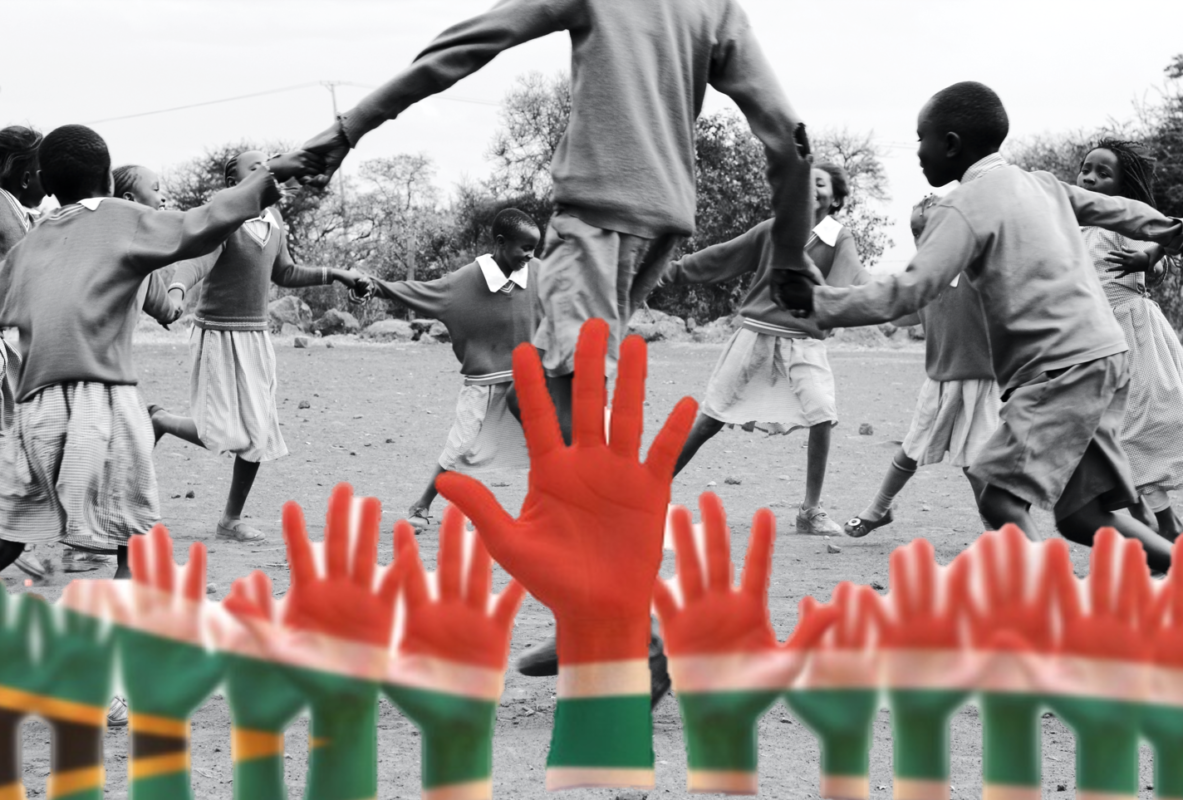As we approach Human Rights Day celebrations on the 21st of March – a public holiday set to mark the Sharpeville protests against racial segregation laws – we reflect on one of the rights we continue to fight for, children’s Right to Education. Education not only appears in our constitutional Bill of Rights, but is considered a universal Human Right. Getting and keeping children in school is fundamental to improving the quality of life in any community, society, or country. And yet, in South Africa, our education system suffers from a high number of grade-repetition and drop-out rates year-on-year.
At The Learning Trust, we believe that the Human Right to Education goes beyond the service of the formal school system. Whilst the school is central to a child’s education, and access to a learning institution is indeed a human right, there are many other aspects of a child’s educational development that deserve to be nurtured. After School Programmes (ASPs) are essential in filling-in the developmental gaps in traditional education, and the sector’s growth over the last decade is a testament to the demand for programmes that meet learners’ more diverse and holistic education needs.
ASPs expose learners to new and enriching experiences
Through ASPs, learners explore and participate in art, music, sport, and life-skills development. They also receive psycho-social support, workplace readiness, leadership training, mentoring, and career guidance.
Ikasi Soccer School in Khayelitsha holds football trials and coding camps, Transitions Foundation in Midrand, Johannesburg conducts master classes and excursions, and Matlhogonolo Community Outreach Centre (MCOC) in Soweto hosts reading days. Access Music Project (AMP) based in Makhanda ‘provides high-quality formal-music lessons, equal to those available at privileged schools, [enabling] musically talented learners to pursue dreams of accessing further studies and careers in music.’
ASPs provide access to resources in under-served communities
Inkululeko’s Social Enterprise Programme, based in Makhanda, provides an alternative post-school pathway for learners by ensuring that they have access to entrepreneurial skills and are equipped with various technical resources. During the early months of lockdown, Transitions Foundation was able to purchase and deliver 67 tablets to learners, staff and tutors. This enabled them to access Zoom, Google Documents, WhatsApp, and applications online.
ASPs encourage learning and advance academic excellence
MCOC’s Founder and Director, Prince Phetoe, recognises that ASPs are an essential ‘support structure’ that ensure “that learning is viewed as fun and accessible.” Their primary school tutoring programme is “nurturing young minds, assisting to lay a solid educational foundation,” and further enables learners to “think independently and achieve greatness.” Phakamani Young Minds Academy in Soweto, Johannesburg, notes how After School acts as a bridge that enforces the work already being done at school, but what really stands out for Xolisile Dladla is how their programmes “play a pivotal role in catering for learners in ways that meet their specific needs and different styles of learning.”
ASPs support and protect children and young people
Transitions Foundation has helped learners “embrace, overcome, thrive and seamlessly flow through their everyday endeavours,” explains Thokozile Budaza. Dumisani Ntsodo, founder of Ikasi Soccer School also highlights their responsibility in protecting their learners by “changing the narrative of girls being emotionally and physically abused.” McDonald Mzimkhulu at The Healing Heart Foundation reflects on how living in one of the townships in the Cape Flats has made him realize how much After School activities were needed in his community; “These programs have a lifetime impact, protecting many learners and young people who had no hope of getting out of gangs or growing any other passions beyond the street.”
Human Rights Day, therefore, is not only a chance to “commemorate what transpired in the past” as Zuko Gqadavama from Inkululeko reminds us, but is an opportunity for the After School community to acknowledge its role in upholding and fighting for the Human Right to Education in all its diverse forms. Access to an ASP is a Human Right and as March 21st comes along this weekend, we encourage partners in the sector to share all the amazing work they do and celebrate the Humans of After School who are working to create a better tomorrow for our learners, their communities, and the country at large.
Please do use the #HumanRightsEducation and tag @TheLearningTrust in any of your social media posts pertaining to the day.
